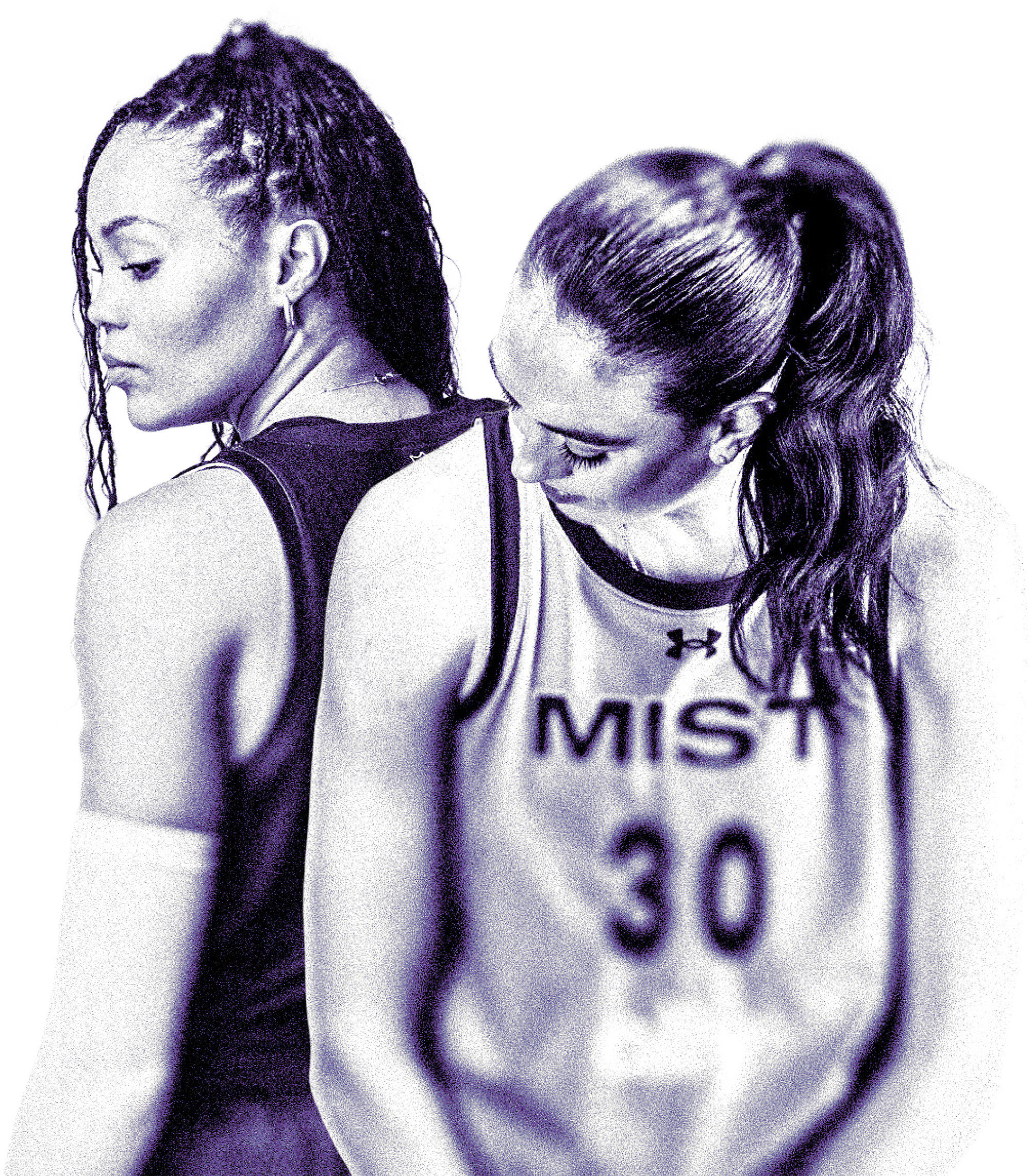
Phee & Stewie:
Unrivaled.
By Pete Croatto
Forgive Napheesa Collier and Breanna Stewart for not gushing over the success of Unrivaled, the three-on-three women’s basketball league they cofounded. It enjoyed hopeful ratings and positive buzz during its inaugural year. Players raved. Great, right? Well, that was winter, a lifetime ago in pro sports. It’s now early July. The UConn women hoop legends are deep into the WNBA season, where they are freshly minted All-Star starters.
They are also staunch realists. “We finished that first season,” Stewart says, “and we were like, ‘OK, what are we going to do to get better?’”
Victory means little without momentum, of course. If you’re a woman athlete, you encounter a different set of standards. To get the rights and treatment that are yawn-inducing givens in the NBA, you do more. Nobody will do it for you.
“Women’s sports, specifically, is so brand- and business-oriented,” Collier says. “You do have to build your own personal brand, and through that, you have to be your own business almost.” Being a women’s basketball player means you’re “always having to fight for more,” adds Stewart, a two-time WNBA most valuable player — you fight for yourself, for others. You fight for a bigger platform, more attention.
Creating a league and playing in it? Well, it’s a glorious accomplishment. And it represents the vexing world Napheesa Collier and Breanna Stewart are determined to improve.

Stewart ’16 (CLAS) and Collier ’19 (CLAS) credit their time at UConn, where they were teammates during the 2015–16 championship season, for bringing them to this point. The lessons came mostly on the court. “I should have taken a lot more business classes,” Stewart quips. (Her individualized major was sport in society; Collier’s degree is in human development and family sciences.)
Head coach Geno Auriemma is relentless in his quest for greatness and hitting perfection square on. His impossible standard, Stewart says, had invaluable utility: She understood her worth and how to advocate for it. “If we don’t like it, we’re going to say something about it, and we’ll be able to back it up with all these different reasons of why we don’t like it and how it can be better.”
Part of Collier’s business prep came from longtime associate head coach Chris Dailey, Auriemma’s partner in UConn’s long-standing dominance. Dailey stressed that people were watching; first impressions were everything. They still are. “You have to be able to work with different brands and present yourself in a businesslike fashion for a lot of different things, where it’s not as much so on the men’s side,” Collier says. “Their salary is for the sport they’re getting paid to do.”
NBA stars also don’t travel the world for paid opportunities as WNBA stars have needed to. That’s what inspired Unrivaled, says Alex Bazzell, Collier’s husband and league president. The couple wanted to “find a solution to stay home” that gave players more than just another chance to hoop.
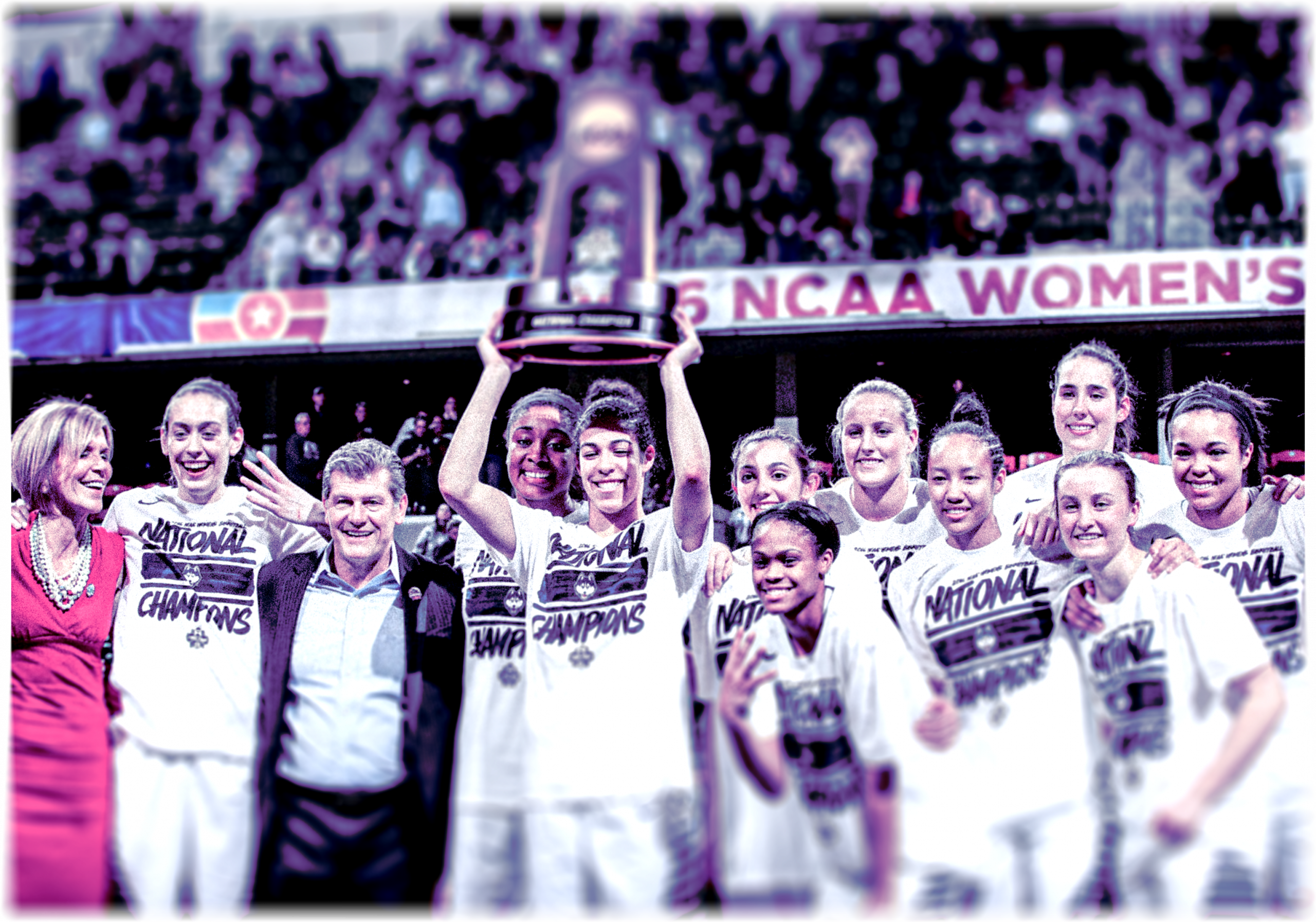

The 411



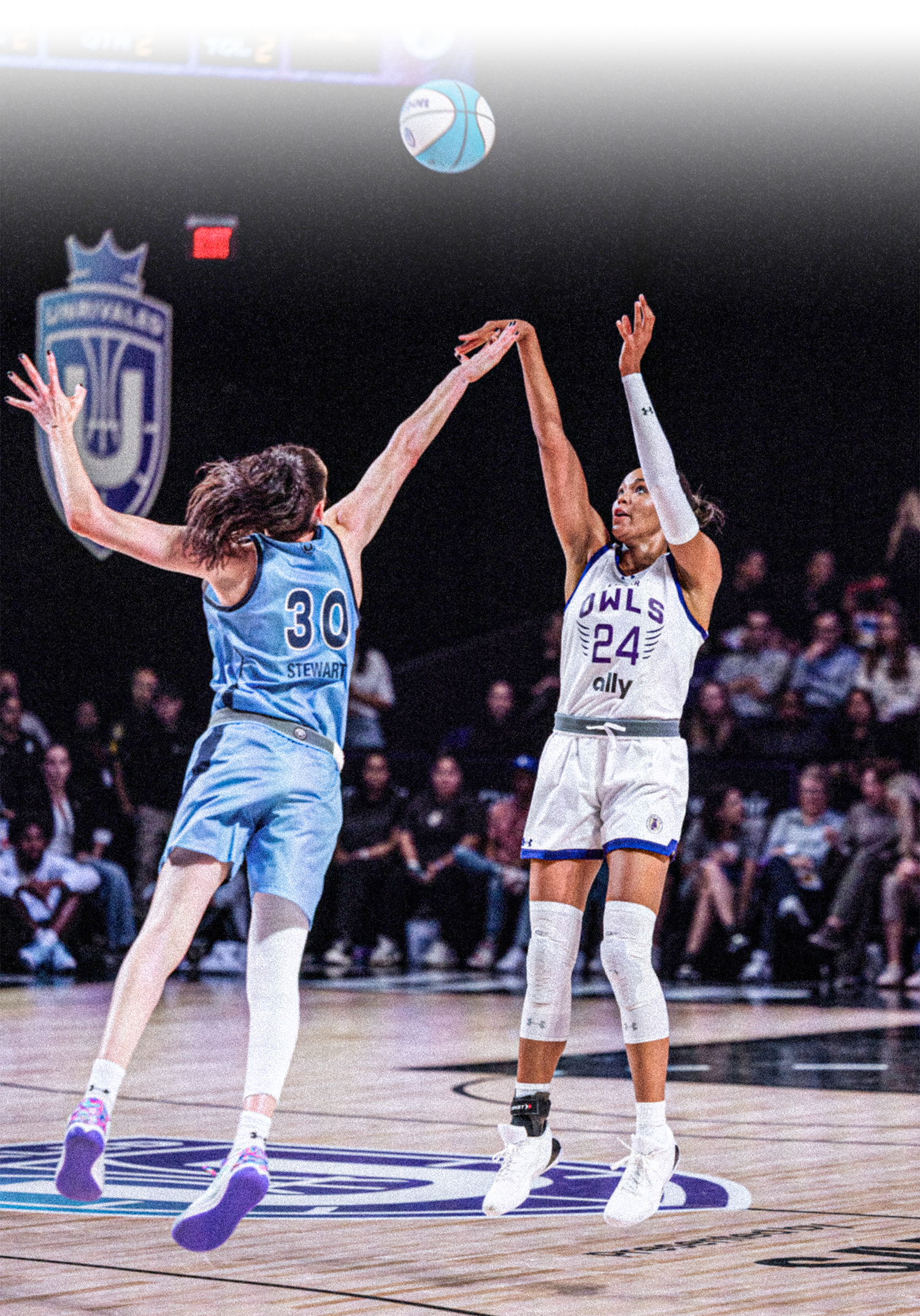
The first recruit was obvious.
“Stewie was earning the most overseas,” Bazzell says, and she was a superstar. “If we could put together something that would attract her, it made it far more believable that we could attract everyone else.” In December 2023, Bazzell pitched Stewart and her wife, Marta Xargay Casademont, a former pro basketball player, over dinner at Del Frisco’s steakhouse in midtown Manhattan.
Bazzell, a heralded basketball skills trainer who previously founded a sports tech company with NBA legend Carmelo Anthony, didn’t start with style of play. He introduced Unrivaled as an upgrade to Stewart’s quality of life: You’d stay stateside, unlike Collier, who was then playing in France; you’d be paid well; you’d have ownership.
Her buy-in was crucial. “If Stewie was like, ‘Listen, I’m not playing unless it’s five-on-five,’ we probably would’ve figured that out,” Bazzell says.
Having Stewart and Collier on board made potential investors take notice, Bazzell says. And when those meetings happened, “They could speak at a level that if you’re an investor, you have to trust, because they’re two of the best women [players] in the world,” he adds. “And they’re telling you, ‘Here are all the ways that women’s basketball actually operates.’”

Being happy with what we already have is just not gonna fly here —
and hopefully it helps the W push forward in bringing in more viewership, bringing in more partners.
Brittney Griner
Phantom BC / Atlanta Dream
Stewart and Collier also had direct access to WNBA players. They could recruit without navigating a maze of handlers. Even with that edge, trumpeting Unrivaled was a bit of an absurdist exercise. Three-on-three full court had no precedent. At one point, Collier was showing an artist’s rendering of the arena.
“The hardest part was getting people to believe in something that hadn’t happened yet,” Stewart says.
The strategy, Collier says, was to sell the players on a dream, and the meaning behind it. “Not only is this good for the right now — yes, we’re trying to make you a lot of money — but this could also change the landscape of women’s sports. We’re trying to change the way people think about women’s sports, the way people invest in it.”
When news of Unrivaled was first announced on “SportsCenter,” the league was still raising the initial $7 million in investment capital. Bazzell says Stewart and Collier understood the risk to having their names attached to a possible flop. But they also understood what was at stake and the potential payoff that would easily offset the risk. In September, Unrivaled announced that it was valued at $340 million after a Series B investment round led by Bessemer Venture Partners.
“We are some of the best players in the world,” Collier says. “We know what works and what doesn’t. We see where the holes are. We have a fix for this. Especially — we’ve been fighting this for years and years — paying the players more. We have a way to do that. Like, why are we waiting for someone else to take the reins?”

Why are we waiting for someone else to take the reins?
Collier
For years, few options existed for women to play pro basketball in the United States beyond the WNBA. Compromises were required. Rebecca Lobo ’95 (CLAS), the ESPN basketball analyst and UConn hoops icon, played for the ill-fated National Women’s Basketball League in the early 2000s during her WNBA offseason. The pay given her abilities stunk — it was either $5,000 a month for three months or $5,000 for the season; she can’t remember. Her Springfield Spirit team flew on Southwest Airlines out of Bradley International Airport in Connecticut. For a game in Chicago, Lobo remembers connecting in Baltimore because it was cheaper.
Collier describes herself and Stewart as the “player experience experts” at Unrivaled. Thanks to their insider expertise — buffeted by a media rights deal with TNT Sports, and Bazzell and his team’s efforts in procuring investment money and sponsorships — the experience at Unrivaled was unheard of in women’s basketball.
Games were played in one place, just outside of Miami. Players resided (for free) in two-bedroom apartments and received rental cars. Unrivaled treated motherhood as a fact, not as a professional inconvenience. Child care was provided before, after, and during games. “You want to make sure your family’s OK, so then you can go and play your best,” says Stewart, who has two kids. Collier and Bazzell have one. The average $220,000 player salary nearly matched the WNBA’s maximum base salary — and players got equity in the league. (For context, the average NBA salary is $14 million.)
“We’re trying to set a new standard at Unrivaled,” Stewart says. This kind of treatment should be “the expectation that every player should have wherever they’re playing.” And that includes the WNBA.
They literally are laying out the red carpet —
we have everything available to become the best basketball players we could be. And if I wasn’t here, I’d probably be in China right now.
Courtney Williams
Lunar Owls BC / Minnesota Lynx
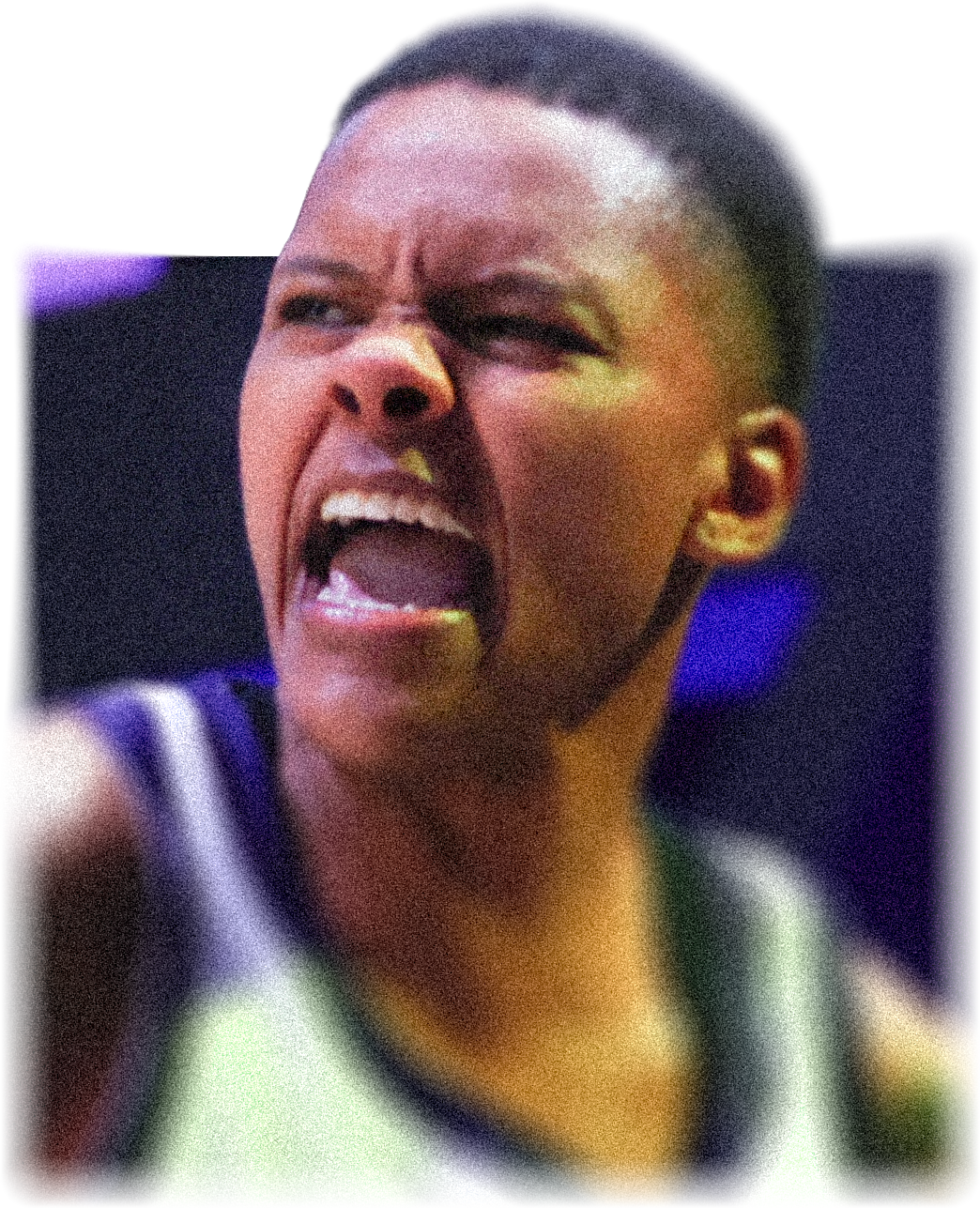
That was apparent early on. The Unrivaled staff was devoted to helping players “do everything we possibly need to do,” Katie Lou Samuelson ’19 (CLAS) said at a January media session. “That’s something that you don’t always get. And it’s hard to find, especially in the offseason.” Or, as Chicago Sky star Angel Reese told reporters, “This is what women deserve: waking up every day and not having to worry about anything.”
“I would have loved it,” Lobo says.
And yet, an improved standard of living does not exactly raise the roof. But this inaugural season, gameplay did. The not-quite full-court three-on-three format was fast-paced and fun, a big difference from the staid, half-court Olympic format. That was a relief to Craig Barry, TNT Sports executive vice president and chief content officer. So were the ratings. Unrivaled coverage reached more than 11.9 million viewers all season and delivered the 10 most-watched women’s basketball games ever on TNT Sports’ networks. Viewership was overwhelmingly female, even on truTV, home of the bro-friendly staple “Impractical Jokers.”
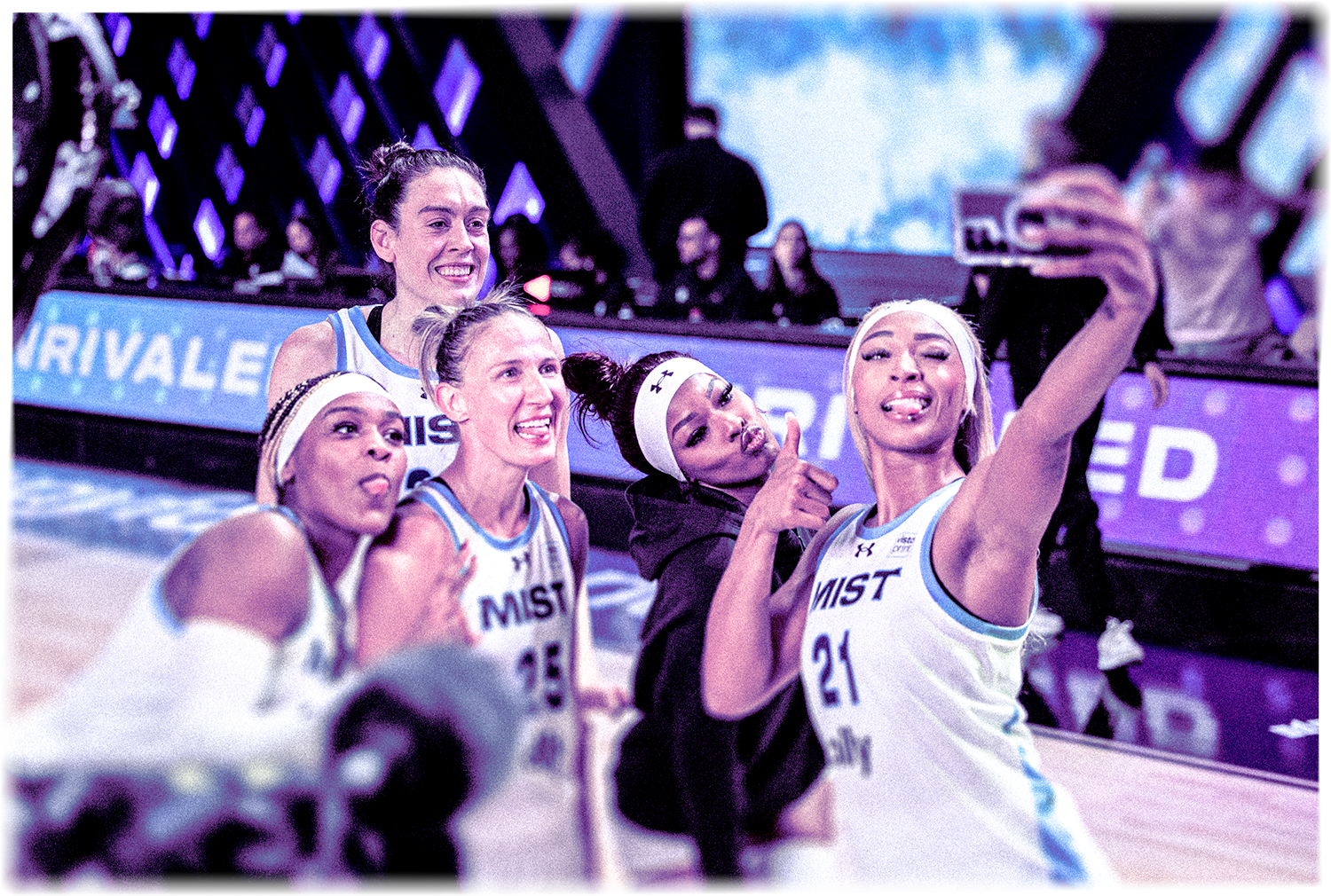
“It’s driving its own audience,” he says.
Because Unrivaled was in one location, fans developed allegiances to players, not teams, Barry says. Stewart and Collier’s networking provided a surplus of stars, including Angel Reese, Brittney Griner, and Sabrina Ionescu.
“You have to get people who are willing to fight with you, who are willing to see your vision, too,” Collier says. “For them to put their names and their brands on the line, their bodies on the line to do this, we’re really grateful toward them.” Paige Bueckers, the latest UConn legend, will play next season. A crop of current college stars signed with Unrivaled over the summer, including UConn’s Azzi Fudd and JuJu Watkins, the USC headliner.
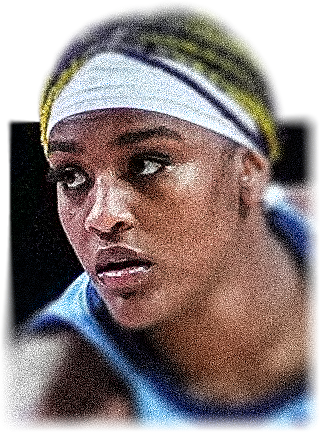
It’s crazy to be surrounded by sunshine and beaches in the wintertime —
that’s a different style for me. I’m just super excited to be here and a part of this league ... to stay in North America, compete against the best players
in the world and also learn from the best.
Aaliyah Edwards ’24 (CLAS)
Mist BC / Connecticut Sun
“When you look at all of the adjacent leagues,” says Barry, ticking off the sports, “the reason they’ve all failed is because they didn’t install the current professional athlete into the opportunity. And the ones that did that merged with the primary league.”
Not a whiff existed of what Barry calls “the All-Star effort,” a barely veiled reference to NBA players treating the league’s showcase game like a treadmill run during a luxury vacation. “If they hadn’t played as hard as they did and laid it all out there every night on the court, it wouldn’t have been nearly as successful,” Barry says.
TNT Sports will invest more in production next season, including higher-quality cameras. “We’ve had a lot of conversations about the way the arena’s going to look and the game’s going to be presented,” Barry says. If you caught an Unrivaled game on TV, Wayfair Arena may have looked empty but, Collier says, “every night was literally sold out.” Bazzell says the league is adding 200 to 250 seats, including behind the benches. There will be at least one tour stop in 2026 and two new teams — Breeze Basketball Club and Hive Basketball Club — as well as a dedicated development player pool.
“I think they came to market in an incredibly strong way,” says Donna Orender, the former WNBA president and a women’s hoops star in the 1970s. “They put their stake in the ground. They created something new that was exciting. They committed to excellence, and they delivered behind that.”
For Lobo, five years ago, such a development was almost unimaginable. “There were so many years where it was hard to support one women’s professional league.”
This is the exposure we deserve, being on TNT every night.
And everybody got equity coming into this league, that’s the most important thing.
Angel Reese
Rose BC / Chicago Sky
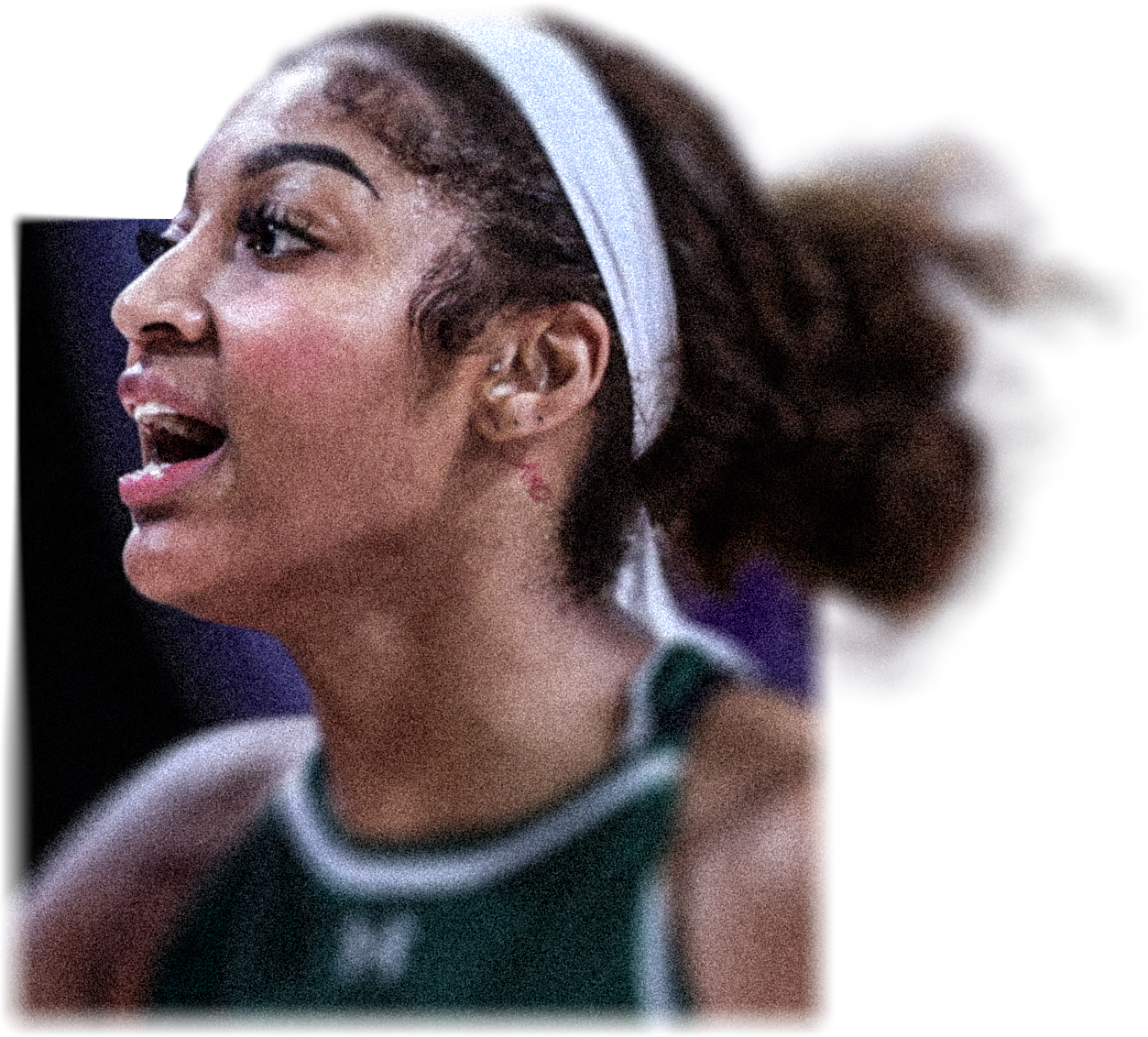

It may feel like women’s basketball is having a moment, thanks to options such as Unrivaled and the popularity of Caitlin Clark. That’s a bit misleading. Ratings for WNBA and women’s college basketball games were on the rise before Clark’s emergence, says sportswriter and author Howard Megdal, founder of The IX Basketball website.
Orender is loath to call it a moment. She deems it “a sustainable foundation,” adding, “The truth of the matter is, men’s sports are, like, a $750 billion valuation all-in, and women’s are just $3 or $4 billion.” That latter number is incomprehensible to anyone who grew up watching women’s sports in the 1970s and 1980s. Now, she adds, it’s proof of “just how much more promise there is.”
If Stephen Curry and LeBron James founded a three-on-three league, the news would be inescapable. In women’s basketball, it’s a Tuesday. “We will look back at this generation of women’s basketball stars and realize that they had to build the plane while they were flying the plane,” Megdal says.
Stewart knows she can’t just play basketball. It’s why she’s focused on promoting Unrivaled, whether it’s at the WNBA All-Star Game or talking about it with yet another bearded, potato-faced sportswriter during the grind of the WNBA season.
This is their league.
“It’s the fight that we fight,” she says.
Stewart and Collier know this truth all too well. They are vice presidents of the Women’s National Basketball Players Association, which is negotiating with the WNBA on a new collective bargaining agreement.
During the warm-up at the WNBA All-Star Game on July 19, the players wore “Pay Us What You Owe Us” shirts. The fans in Indianapolis loved it.
Unrivaled doesn’t carry that burden. “It just feels like your voice really matters,” Collier says. “It feels like it’s a bit more of a fight with an organization that’s been established for 30 years. You don’t have as much of a say. It’s harder to move things; it’s harder to change things. There’s a lot of bylaws that have been set. There’s a lot of precedent. There are a lot of minds you have to change that sometimes don’t want to be changed.”
This is their league. Collier and Stewart started it for themselves, for their teammates and their opponents. Yes, there’s work to do, but it’s not the kind that drains and frustrates you, that causes you to ask tough questions and to fear the answers.
This time, it’s fun. This time, it’s not a fight. “It feels,” Collier says, “like we’re working toward the same thing.”


This is an amazing story about two amazing young ladies. As a UConn fan, I am happy for them and as a basketball fan, I am happy that women are advancing further into getting the recognition and most importantly, closer to the pay they deserve. Women basketball is an excellent product. The one recommendation I would suggest is that the final one on one competition actual be two competitions. One specifically for forward/centers and the other for guards. This would give the guards a better opportunity to partake in that final one on one competition.
As a 1972 UConn grad. I am so excited for Breanna, Napheesa and all the professional women athletes who are making this happen! I also applaud Collier for her bravery in standing up for herself and others against the WNBA. Great article! Thanks